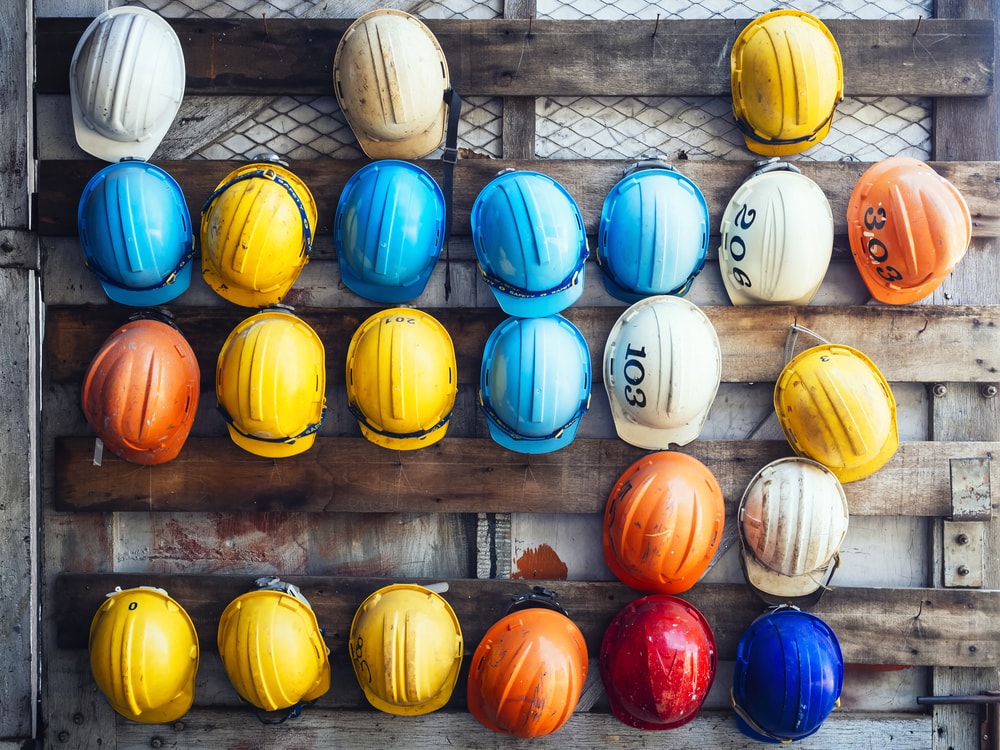Features - Business
The importance of diversity, inclusion, and equality within the construction industry

Businesses all around the world are constantly under pressure to demonstrate their commitment to promoting equality in the workplace, and yet, the construction industry, like many others, has traditionally been slow to embrace change.
Despite making significant strides in the pursuit of equality over recent years – with Costain’s Helen Willis recently becoming the first ever female to be named amongst the best paid construction executives, for example – the sector remains highly white male dominated to this day. The workforce currently consists of only 15% female and 6% BAME employees – the vast majority of these individuals holding office roles.

Sarah Kauter, CEO of Construction PR
Diversity and inclusivity within any field serves as the backbone for building a sturdy and successful business. It opens up your brand to a significant segment of previously undiscovered talent, which is especially important when considering the construction industry’s current skill shortage. But, aside from simply being the morally right course of action, why else should businesses within the construction and accompanying industries prioritise enhancing the diversity and inclusivity of their workforce? Sarah Kauter, CEO of Construction PR, has shared her insight:
Modernisation of the industry
It can be said that the majority of today’s younger generation remain unaware of the broad spectrum of jobs that exist within the construction industry – not solely the stereotypical manual labourer. The construction industry has long been coined as a field which tends to lag behind others in terms of modernisation and digitalisation, and as such, is often perceived as career-limiting – but this is far from the truth.
One way of catalysing this change of perception is through the modernisation of the industry. Particularly by continuing to implement and embrace new technology as and when it becomes available, rather than typically being one of the last to follow suit. By doing so, the industry can attract those with skills and ambitions that extend beyond the construction site, opening up the field to an entire new generation of workers.
Investing in the future of the industry
The skills shortage within labour-heavy industries, such as construction, have been a concern for UK businesses for a number of years now, with the issue only looking to become more pressing in the future. Primarily, this comes down to the ageing workforce. Where the industry historically consisted of predominantly older white males, fewer people today are entering the industry to replace them as and when they retire. In fact, when considering the growing demands of the UK’s construction sector, it is estimated that as many as 266,000 extra workers are required by 2026 to sufficiently meet this quota.
Encouraging diverse groups to enter the construction industry is only half of the job. Perhaps the most motivational incentive for replenishing this skill gap is actually seeing diversity succeed in action. Widening the talent pool plays a significant role in achieving this, enabling previously unreached workers of vast experience – as well as fresh talent with modish skills and innovative perspectives – to fuel productivity, empower creativity, and enhance commercial performance. The impact of this is the development of a circular effect, whereby the diversification of the workforce helps to further encourage more BAME or female individuals to enter the industry moving forward.
Brand Perception and Financial Performance
Alongside safeguarding the future of the industry, businesses maintaining a diverse workforce have also been shown to hold an economic advantage over their less inclusive competitors. In fact, Forbes have found businesses with more culturally and ethnically diverse executive teams to be as much as 36% more likely to outperform white-male-heavy demographics, and 25% more likely to achieve above average profitability when incorporating greater gender diversity than their counterparts. With a more diverse core and culture, companies can effectively develop more thorough insights into a wider consumer audience, leading to greater innovation in response to their target demographic’s demands, and stronger value creation in satisfying them.
Incorporate diversity and inclusivity into your business model
Diversity must be a prominent part of your business model, not only because of its role in brand perception and reputation, but because it inspires a variety of business-wide benefits. From unlocking employees’ untapped potential to fuelling productivity, enhancing employee satisfaction, powering creativity, setting a positive example for the rest of the industry, evidencing your businesses’ morality, and more, investing time and energy into diversity and inclusion must be a priority for any business. With the rising costs of energy and materials within the industry already squeezing many construction firm’s margins, this is something that truly cannot be ignored.
If you would like to read more stories like this, then please click here
Related Articles
More Features
- Ten years of progress on payment, pre-qualification and skills
19 May 25
The industry has made significant progress on late payment, pre-qualification, and competence since the formation
- Pagabo provides clarity on impacts of new NPPS and PPNs
12 Mar 25
The Labour government’s new National Procurement Policy Statement (NPPS) sets out strategic priorities for public
- How is the Procurement Act going to drive social value
24 Feb 25
The regulations laid out within the Procurement Act 2023 will go live today.






